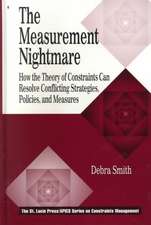Intellectual Property Rights and Competition in Standard Setting: Objectives and tensions: Routledge Research in Intellectual Property
Autor Valerio Tortien Limba Engleză Hardback – 26 oct 2015
This book examines the tension between IPRs and competition in the standard setting field which can arise when innovators over-exploit the rights they have been granted and hold up an entire industry. The book compares EU and U.S. jurisdictions with a particular focus on the IT and telecommunication sectors. It scrutinizes those practices which could harm standard setting and its goals, looking at misleading conducts by SSOs’ members which may lead to breach the EU and U.S. antitrust provisions on abuse of market power. Recent developments in EU and U.S. standard setting are analysed highlighting the differences in enforcement approaches. The book considers how the optimal balance between IPRs and industry standards can be struck, suggesting a policy model which takes into account both innovators’ interests and SSOs’ goals.
| Toate formatele și edițiile | Preț | Express |
|---|---|---|
| Paperback (1) | 414.32 lei 6-8 săpt. | |
| Taylor & Francis – iun 2018 | 414.32 lei 6-8 săpt. | |
| Hardback (1) | 1059.45 lei 6-8 săpt. | |
| Taylor & Francis – 26 oct 2015 | 1059.45 lei 6-8 săpt. |
Din seria Routledge Research in Intellectual Property
-
 Preț: 295.69 lei
Preț: 295.69 lei -
 Preț: 311.41 lei
Preț: 311.41 lei -
 Preț: 325.72 lei
Preț: 325.72 lei -
 Preț: 340.84 lei
Preț: 340.84 lei -
 Preț: 311.76 lei
Preț: 311.76 lei - 29%
 Preț: 652.04 lei
Preț: 652.04 lei -
 Preț: 443.65 lei
Preț: 443.65 lei - 18%
 Preț: 1109.18 lei
Preț: 1109.18 lei -
 Preț: 350.72 lei
Preț: 350.72 lei -
 Preț: 469.34 lei
Preț: 469.34 lei - 22%
 Preț: 136.01 lei
Preț: 136.01 lei - 18%
 Preț: 1109.18 lei
Preț: 1109.18 lei - 18%
 Preț: 1002.36 lei
Preț: 1002.36 lei -
 Preț: 415.09 lei
Preț: 415.09 lei -
 Preț: 388.90 lei
Preț: 388.90 lei - 18%
 Preț: 1003.12 lei
Preț: 1003.12 lei -
 Preț: 449.41 lei
Preț: 449.41 lei -
 Preț: 317.67 lei
Preț: 317.67 lei - 20%
 Preț: 931.42 lei
Preț: 931.42 lei -
 Preț: 365.16 lei
Preț: 365.16 lei -
 Preț: 489.26 lei
Preț: 489.26 lei -
 Preț: 374.54 lei
Preț: 374.54 lei -
 Preț: 280.71 lei
Preț: 280.71 lei - 25%
 Preț: 654.07 lei
Preț: 654.07 lei -
 Preț: 492.74 lei
Preț: 492.74 lei - 26%
 Preț: 763.61 lei
Preț: 763.61 lei - 18%
 Preț: 708.67 lei
Preț: 708.67 lei -
 Preț: 461.66 lei
Preț: 461.66 lei - 18%
 Preț: 999.51 lei
Preț: 999.51 lei - 18%
 Preț: 1060.43 lei
Preț: 1060.43 lei -
 Preț: 385.84 lei
Preț: 385.84 lei -
 Preț: 387.75 lei
Preț: 387.75 lei - 18%
 Preț: 1063.41 lei
Preț: 1063.41 lei - 23%
 Preț: 320.36 lei
Preț: 320.36 lei
Preț: 1059.45 lei
Preț vechi: 1292.01 lei
-18% Nou
Puncte Express: 1589
Preț estimativ în valută:
202.72€ • 211.68$ • 167.40£
202.72€ • 211.68$ • 167.40£
Carte tipărită la comandă
Livrare economică 15-29 aprilie
Preluare comenzi: 021 569.72.76
Specificații
ISBN-13: 9781138941571
ISBN-10: 1138941573
Pagini: 276
Ilustrații: black & white illustrations
Dimensiuni: 156 x 234 x 18 mm
Greutate: 0.59 kg
Ediția:1
Editura: Taylor & Francis
Colecția Routledge
Seria Routledge Research in Intellectual Property
Locul publicării:Oxford, United Kingdom
ISBN-10: 1138941573
Pagini: 276
Ilustrații: black & white illustrations
Dimensiuni: 156 x 234 x 18 mm
Greutate: 0.59 kg
Ediția:1
Editura: Taylor & Francis
Colecția Routledge
Seria Routledge Research in Intellectual Property
Locul publicării:Oxford, United Kingdom
Public țintă
Postgraduate and UndergraduateCuprins
Part One - IPRs, Competition and the Standards Chapter One The Objectives of Competition Law Chapter Two Goals of IP Law and Interplay with Competition Chapter Three IPRs and Standard Setting: Functions and Rules Part Two – Anticompetitive Conduct and Standardization Chapter Four The Interaction IPRs – Competition in Standard Setting Chapter Five The U.S. Approach in the Standards - Market Power Dichotomy Chapter Six Abuse of Dominance in Standard Setting - the EU Approach Part Three - Reconciling IPRs and Competition in Standard Setting Chapter Seven Suggested Model and Enforcement
General Conclusions
General Conclusions
Descriere
This book examines the tension between IPRs and competition in the standard setting field which can arise when innovators over-exploit the rights they have been granted and hold up an entire industry. The book compares EU and US jurisdictions with a particular focus on the IT and telecommunication industries. It scrutinizes those practices which could harm standard setting and its goals, looking at misleading conducts by SSO members which may breach the EU and US antitrust provisions on abuse of market power. Recent developments in EU and US standard setting are analyzed highlighting the differences in enforcement approaches. The book considers how the optimal balance between IPRs and industry standards can be struck, suggesting a policy model which takes into account both innovators’ interests and SSOs’ goals.


















